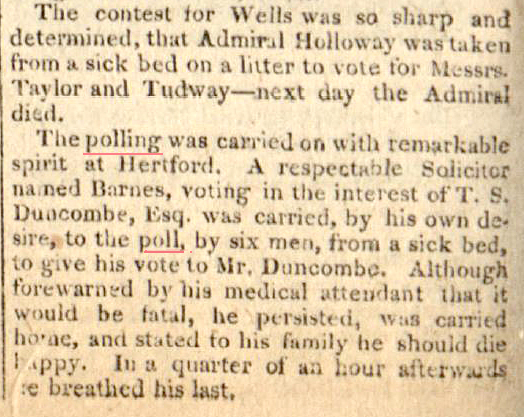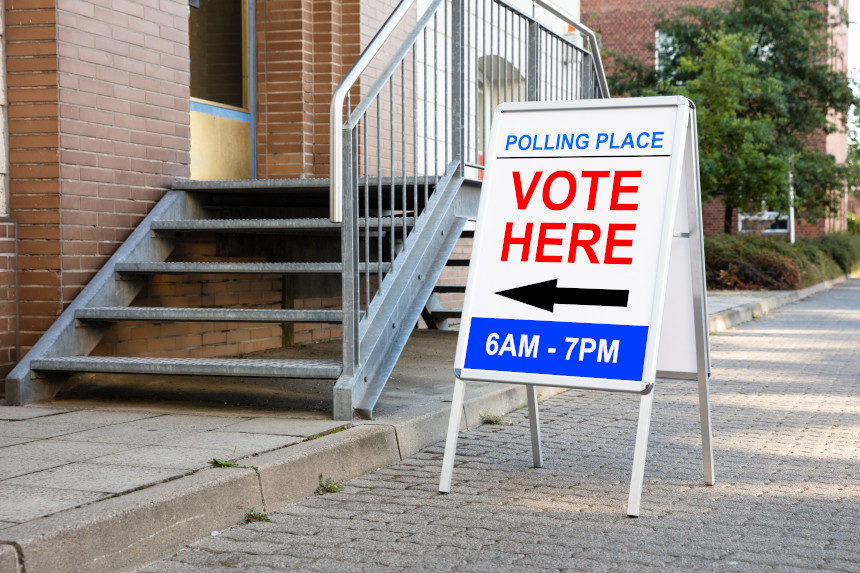Managing editor and logophile Andy Hollandbeck reveals the sometimes surprising roots of common English words and phrases. Remember: Etymology tells us where a word comes from, but not what it means today.
All across the country, people will head to the polls without even realizing the repetition (at least historically) in that phrase “head to the polls.”
Middle Low German pol referred to one’s head, but especially the top and back of the head, where the hair grows. This became the Middle English polle (still meaning “head”) around the beginning of the 14th century. So from a historical perspective, “head to the polls” is really “head to the heads.”
Fairly quickly though, synecdoche — the rhetorical device that uses the name of one part of something to refer to the whole thing, like calling your car your “wheels” — took over, and by the mid-14th century, poll was being used to refer to an individual person or animal.
This might bring to mind the idea of taking a headcount; that’s exactly what was happening when shepherds, cowherds, and community organizers took count “by polls”: They were counting heads, one by one.
But people didn’t show up to be counted for no reason. By the 1620s, we find the verb poll meaning not to count heads, but to count votes. And from there, it’s a clear shot to a wider poll-based election vocabulary — including polling place and poll tax — by the 19th century.
This amazing clip from The Saturday Evening Post of August 19, 1826, finds some men literally dying to vote. In it, we find polling used as a synonym for voting and poll as the place where votes are cast.

The vocabulary that comes into play during elections stems from a wide variety of sometimes surprising etymological sources, some of which I’ve written about before. Check out “What Is a Caucus Anyway?,” “A Candidate as White as Snow,” and “Where Your Ballot Comes From” for a little language trivia you can share with other voters when you poll to the heads — er, head to the polls.
Featured image: Andrey_Popov / Shutterstock
Become a Saturday Evening Post member and enjoy unlimited access. Subscribe now



